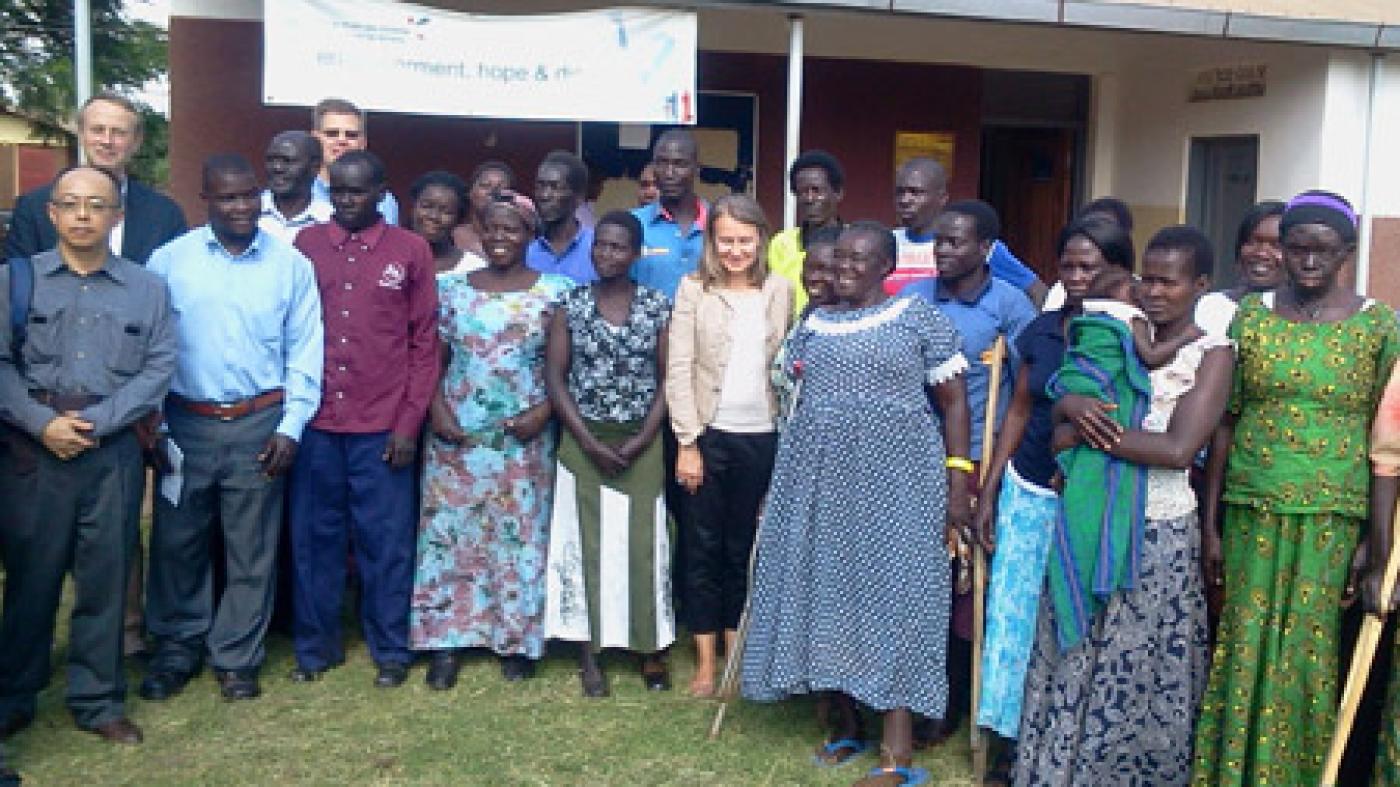
The Hague - The services provided by the Trust Fund for Victims (TFV) and its partners to over 110,000 victims, their families and their communities already greatly contribute to the Rome Statute’s endeavour to ensure justice for victims. This conclusion was reached by a high-level delegation visiting the TFV programmes in northern Uganda and in the Ituri District in eastern Democratic Republic of the Congo (DRC).
From 1 to 11 September 2013, Ambassador Tiina Intelmann, President of the Assembly of States Parties (ASP), and Motoo Noguchi, Chair of the Board of Directors of the Trust Fund for Victims (TFV) at the International Criminal Court, travelled to Uganda and DRC. They were accompanied by TFV Executive Director Pieter de Baan and field staff. The delegation visited TFV projects in Gulu and Oyam districts and surroundings in northern Uganda. From there on, the visitors travelled to Mahagi, Ame and Bunia in the Ituri District in eastern DRC.
Throughout the mission, the delegation engaged with beneficiaries of the TFV programmes, with locally based implementing partners and representatives of national and local authorities. In Kampala, there were meetings with the Ministers of Foreign Affairs and Justice and high-level officials from the Ministry of Health. The delegation engaged with the press in Kampala, Gulu and Bunia. In Gulu, the mission members participated in a radio call-in show.
”It was inspiring to be able to witness how voluntary contributions by States Parties to the Trust Fund are translated into assistance services that deliver real benefit to victims,” said President Intelmann. “I was personally moved by the courage and confidence of victims sharing their story about how their lives have been transformed as a result of the medical, psychological and material support they received through the Trust Fund’s programmes.”
According to TFV Chair Motoo Noguchi, “This mission confirms to me that we are making the right choices in addressing the harm suffered by victims, which is otherwise very difficult to assess from afar. I have been encouraged by the reparative value of the Trust Fund’s programmes and by its tangible impact on the lives of victims and their communities. This could not be possible without the efforts of our programme staff and our local implementing partners working in challenging circumstances. I will share my experience with the other members of the TFV Board and it should be very useful in informing our future decision-making.”
Meetings with beneficiaries in northern Uganda confirmed to the delegation the added value of the TFV interventions in addressing the longer-term physical and psychological harm suffered by victims, taking into consideration their often precarious social and economic position in society. In Mahagi (DRC), the delegation was impressed by a visit to the Peace Education programme, “A l’école de la Paix”. Involving over 20,000 children in primary and secondary schools, who themselves have often been directly exposed to violence, this TFV programme seeks to instill a culture of finding non-violent solutions to conflict, which is already radiating to their families and communities. The delegation also visited a vocational training centre in Ame aiming to facilitate the social and economic reintegration of former child soldiers into their communities. The delegation was briefed about the Peace Caravan, which provides community-based support on non-violent conflict resolutioninvolving over 25,000 beneficiaries. The Peace Caravan also assists communities in identifying individual victims who are most in need of specialised medical treatment or trauma-based counseling.
Of particular note was a visit to a project near Bunia addressing the harm suffered by victims of sexual and gender-based violence (SGBV). Over 300 SGBV victims receive counseling and vocational training allowing them to regain their dignity and their place in the community. The small-scale savings and loan schemes and technical training also reach thousands of other members of the community. The delegation came away convinced that the rehabilitation of victims can only be successful if accepted and supported by their families and communities and with the additional of livelihood support.
The delegation notes that the TFV should further intensify its engagement with domestic initiatives in order to ensure the sustainability of its programmes.
For more information about the activities of the Trust Fund for Victims, visit www.trustfundforvictims.org. The TFV’s Summer 2013 Programme Progress Report can be found here.